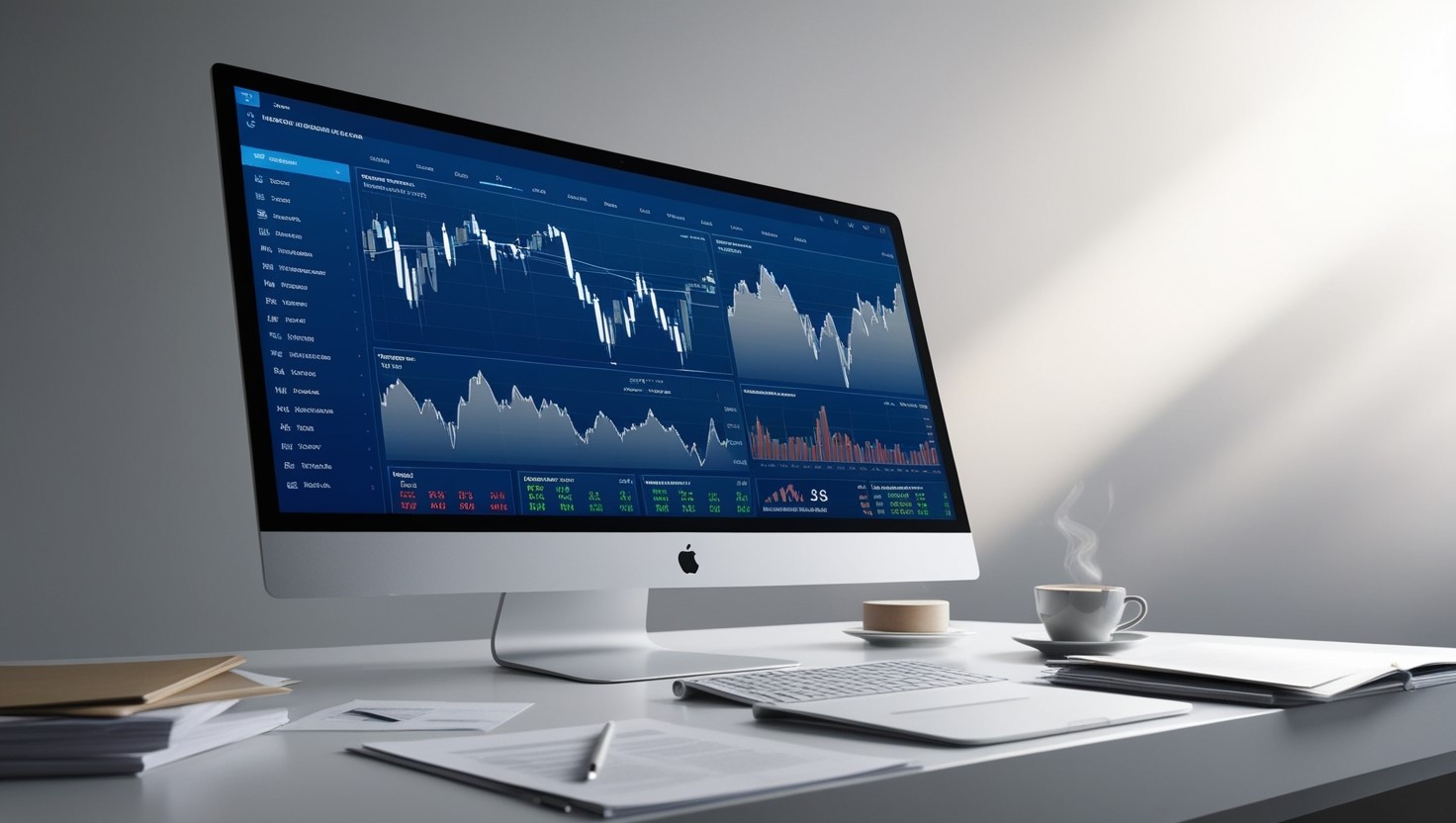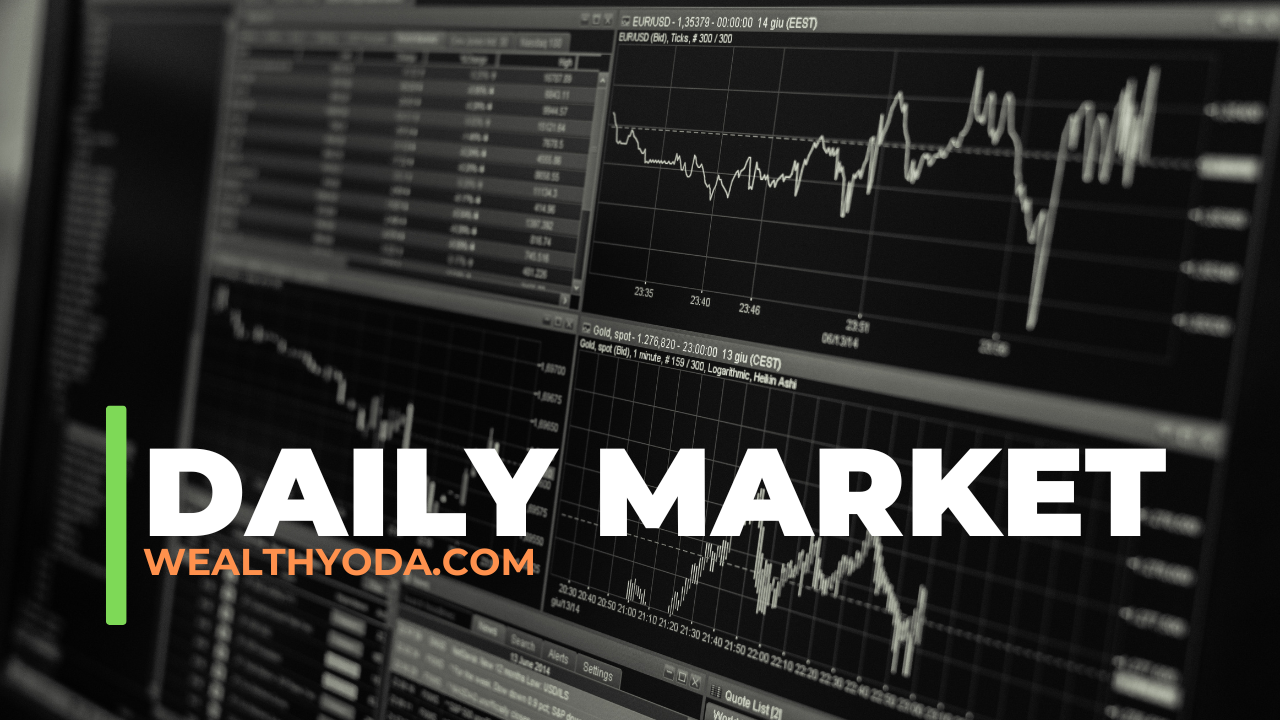The Importance of Reliable Financial Market Data for Retail Investors
Having access to accurate and timely information isn’t just helpful—it’s essential. For retail investors, who often don’t have the same resources as professional traders or institutional investors, reliable market data can make all the difference between a well-informed decision and a costly mistake. Whether you’re building a long-term portfolio or making quick trades, staying on top of market trends, news, and price movements is key to protecting and growing your investments.
But finding the right financial market data service can be a challenge. With so many options available, from free platforms to premium subscriptions, it’s not always easy to know which service will give you the data you need without overwhelming you with features you don’t. That’s where this guide comes in—helping you understand the most important factors to look for in a market data service, and how to choose one that aligns with your investment goals.
Key Features to Look for in a Financial Market Data Service
When choosing a financial market data service, it’s important to know what features matter most for retail investors. With so much information out there, the right service should provide exactly what you need to make smart, informed decisions without overwhelming you. Here are the key features you should look for when picking the best tool to help guide your investments.
1. Accuracy and Reliability
First and foremost, you need data you can trust. Markets move fast, and basing your decisions on outdated or inaccurate information can cost you. Look for a service with a solid reputation for providing up-to-date, reliable data that you can count on, whether you’re tracking stock prices or researching historical trends.
2. Real-Time Updates
In fast-moving markets, timing is everything. Having access to real-time data allows you to react quickly to changes, whether it’s a sudden price drop or a new opportunity emerging. Not all services offer real-time updates without a subscription fee, so make sure to choose one that fits your investment style—especially if you’re day trading or making decisions that rely on current information.
3. Comprehensive Market Coverage
A good data service should cover all the financial instruments you’re interested in, from stocks and bonds to ETFs, commodities, and more. The broader the coverage, the better equipped you’ll be to diversify your portfolio or dig into niche areas when needed. Whether you’re a stock-focused investor or looking to explore other markets, make sure your chosen service offers the data you need across the board.
4. User-Friendly Interface
Data is only useful if you can easily understand and access it. Look for a service that offers a clean, intuitive interface, so you can find what you need quickly without getting bogged down in unnecessary features. A well-organized platform makes all the difference, especially if you’re not a seasoned expert in reading charts or financial reports.
5. Customizable Alerts and Notifications
Keeping an eye on the market doesn’t mean you need to be glued to your screen all day. The best data services offer customizable alerts and notifications, so you can stay informed about important changes without the constant monitoring. Whether it’s price movements, earnings reports, or breaking news, having the ability to set personalized alerts keeps you updated on what matters most to your strategy.
6. Affordability
For retail investors, cost is always a consideration. While premium services offer robust features, it’s essential to balance your need for high-quality data with your budget. Fortunately, many reliable data services offer a range of pricing options, including free versions or affordable subscriptions that deliver a solid mix of value and essential features.
When looking for a financial market data service, focus on what will support your investment decisions best. Whether you’re after real-time updates, a clean interface, or cost-effective options, choosing the right tool will help you stay informed and confident in your investment journey.
Types of Financial Market Data Services
When it comes to financial market data services, not all options are created equal. Depending on your investment style and the level of data you need, the right service can range from simple and free to comprehensive and paid. Here’s a breakdown of the most common types of financial market data services available to retail investors.
1. Free Data Services
For investors who are just starting or those who don’t need advanced tools, free data services can offer plenty of valuable information. Platforms like Yahoo Finance and Google Finance provide basic real-time quotes, news updates, and some financial analysis tools. While these services are limited compared to premium options, they’re perfect for those looking for an affordable way to track the markets without diving too deep into complex features. However, keep in mind that free services may not always offer real-time data or detailed analysis, which could be a limitation for active traders.
2. Premium Data Services
If you’re serious about investing and need more detailed information, premium data services might be worth the investment. Platforms like Bloomberg and Morningstar offer comprehensive market coverage, in-depth analysis, and advanced charting tools. These services often provide access to expert research, fundamental data, and real-time market updates. While they come with a subscription cost, the value they deliver can make a huge difference for investors who want to make well-informed decisions based on reliable, up-to-the-minute data.
3. Brokerage Platforms
Many online brokerages, like TD Ameritrade, Fidelity, and ETRADE*, offer their financial market data services as part of their trading platforms. These platforms give you direct access to real-time quotes, research reports, technical analysis tools, and even educational resources to help you sharpen your investment skills. If you’re already using one of these brokerages for your trades, their built-in data services can be incredibly convenient and often included at no extra cost.
4. Specialized Data Services
For investors with specific needs—such as those trading in niche markets like cryptocurrency, forex, or options—there are specialized data services tailored to these areas. Platforms like CoinMarketCap for cryptocurrencies or MetaTrader for forex trading provide the targeted information you need to succeed in these markets. These specialized services are designed for traders who need precise, market-specific data and tools that go beyond the standard stock market coverage.
Each type of financial market data service comes with its own set of strengths and weaknesses. The key is to find the one that best suits your investment style, budget, and the level of detail you need. Whether you’re just starting out with a free service or ready to invest in a premium platform, having the right data at your fingertips will give you the confidence to navigate the markets effectively.
Top Financial Market Data Services for Retail Investors
With so many financial market data services available, it can be tough to know which one is the best fit for your needs. Whether you’re looking for detailed analysis or simple price tracking, there’s a service out there for every type of retail investor. Here are some of the top choices, each offering unique features and benefits to help you stay on top of the markets.
1. Yahoo Finance
Strengths:
Yahoo Finance is a favorite among retail investors for a reason—it’s free, easy to navigate, and provides a solid range of data for tracking stocks, ETFs, and mutual funds. You can get real-time quotes, follow your portfolio, and access basic financial news and analysis without a subscription. It’s especially useful for casual investors who don’t need advanced tools but still want a reliable way to stay informed.
Weaknesses:
While it’s great for the basics, Yahoo Finance lacks the depth and more advanced features offered by premium services. If you’re looking for in-depth technical analysis or detailed research reports, you might find yourself needing more.
2. Morningstar
Strengths:
Morningstar is a go-to for investors who want to dive deeper into fundamental analysis. It’s particularly strong when it comes to mutual funds, ETFs, and stocks, offering detailed reports, analyst ratings, and portfolio management tools. Morningstar’s research is widely trusted, making it a great choice if you’re focused on long-term, value-driven investing.
Weaknesses:
The downside? You’ll need a paid subscription to unlock most of the in-depth reports and analysis. If you’re just looking for basic data, the free version may feel a bit limited.
3. TradingView
Strengths:
For investors who love technical analysis, TradingView is one of the best platforms out there. It offers powerful charting tools, real-time data, and an active community of traders who share insights and ideas. The interface is sleek and user-friendly, making it a favorite among both beginners and seasoned traders.
Weaknesses:
Some of the more advanced features, like certain real-time data feeds and custom indicators, require a paid subscription. If you’re not into technical analysis, the platform might offer more than you need.
4. Bloomberg Terminal
Strengths:
If you’re looking for the gold standard in market data, Bloomberg Terminal is hard to beat. It provides comprehensive real-time data, news, and analysis across global financial markets, all in one platform. This is the tool professionals use to track everything from stocks to commodities to currencies, making it perfect for serious investors who need access to the most detailed information available.
Weaknesses:
The biggest drawback here is cost. Bloomberg Terminal is incredibly expensive and likely overkill for the average retail investor. However, if you’re managing a significant portfolio or investing on a professional level, it’s worth considering.
5. TD Ameritrade’s Thinkorswim
Strengths:
Thinkorswim, offered by TD Ameritrade, is a fully featured trading platform that’s great for retail investors looking for advanced charting, research tools, and real-time market data. It’s free to use for TD Ameritrade clients, and the platform is packed with educational resources, making it ideal for those who want to learn while they invest.
Weaknesses:
While Thinkorswim is excellent for active traders, its complexity can be a bit overwhelming for beginners. If you’re just starting out or prefer simpler tools, you may find it has more features than you need.
Final Thoughts
Navigating the financial markets can feel overwhelming, but having the right data at your fingertips makes all the difference. Whether you’re a casual investor looking to track your portfolio or a more experienced trader who relies on real-time analysis, there’s a financial market data service that fits your needs. From free, easy-to-use platforms to premium tools packed with in-depth research, the right choice depends on your investment style, goals, and how much detail you want.
Start by considering what’s most important to you—do you need real-time updates, detailed technical charts, or simply a clean, user-friendly interface? Are you comfortable with a free service, or are you ready to invest in a premium platform for more advanced features? The good news is that there are plenty of options, each offering a unique blend of features designed to support retail investors like you.
No matter where you are in your investing journey, having reliable market data is key to making smart, informed decisions. The best part? With the wide range of tools available today, you can find a service that fits your needs and your budget. So, explore your options, and choose the one that will help you take control of your investments with confidence.



